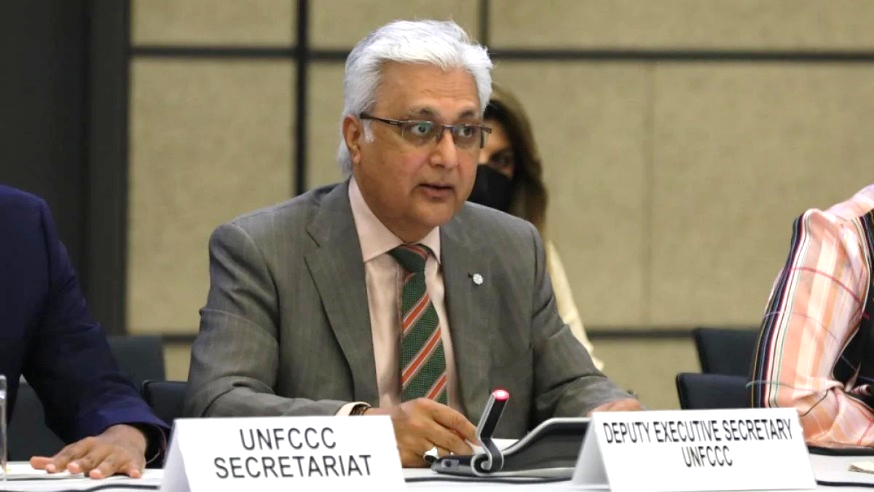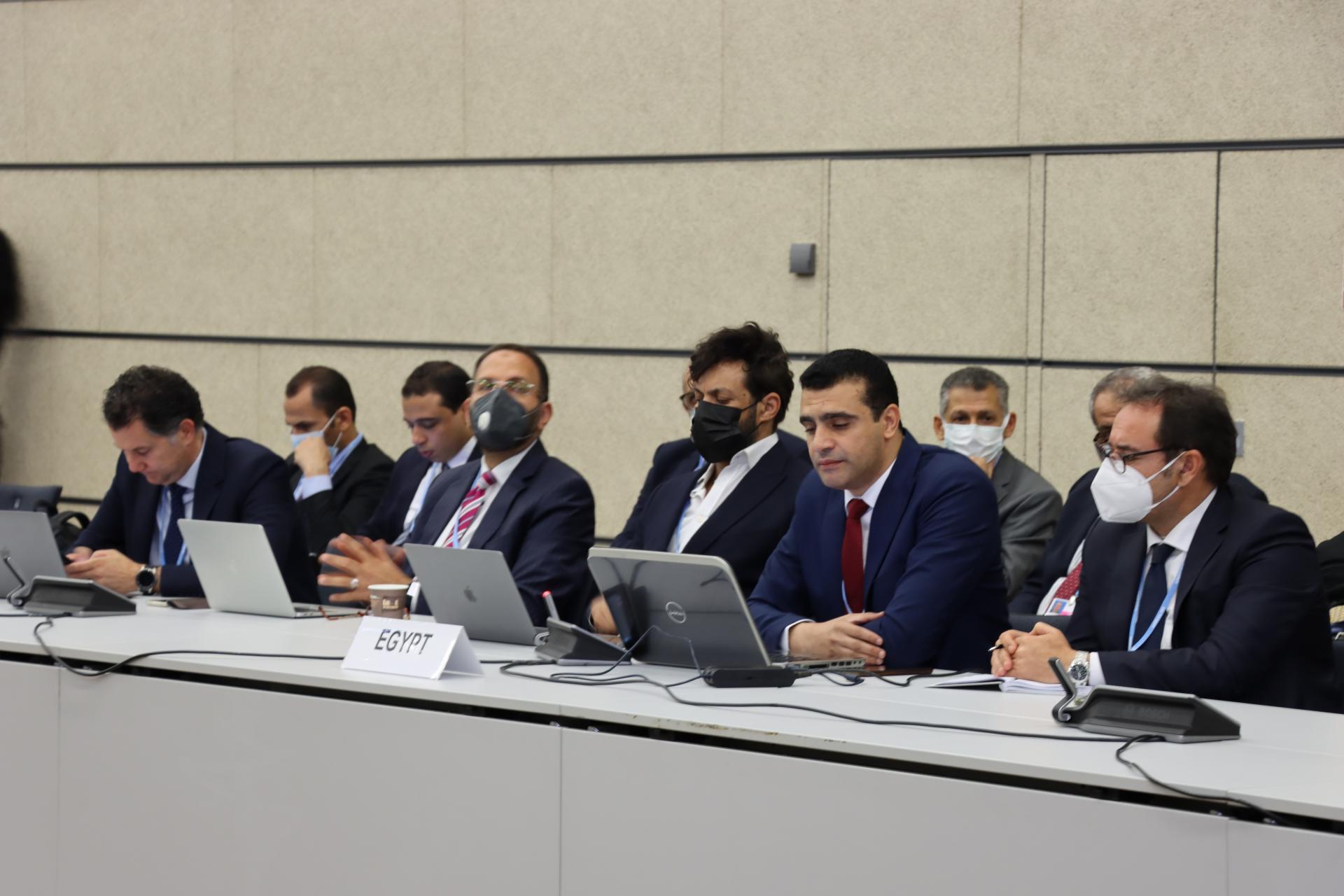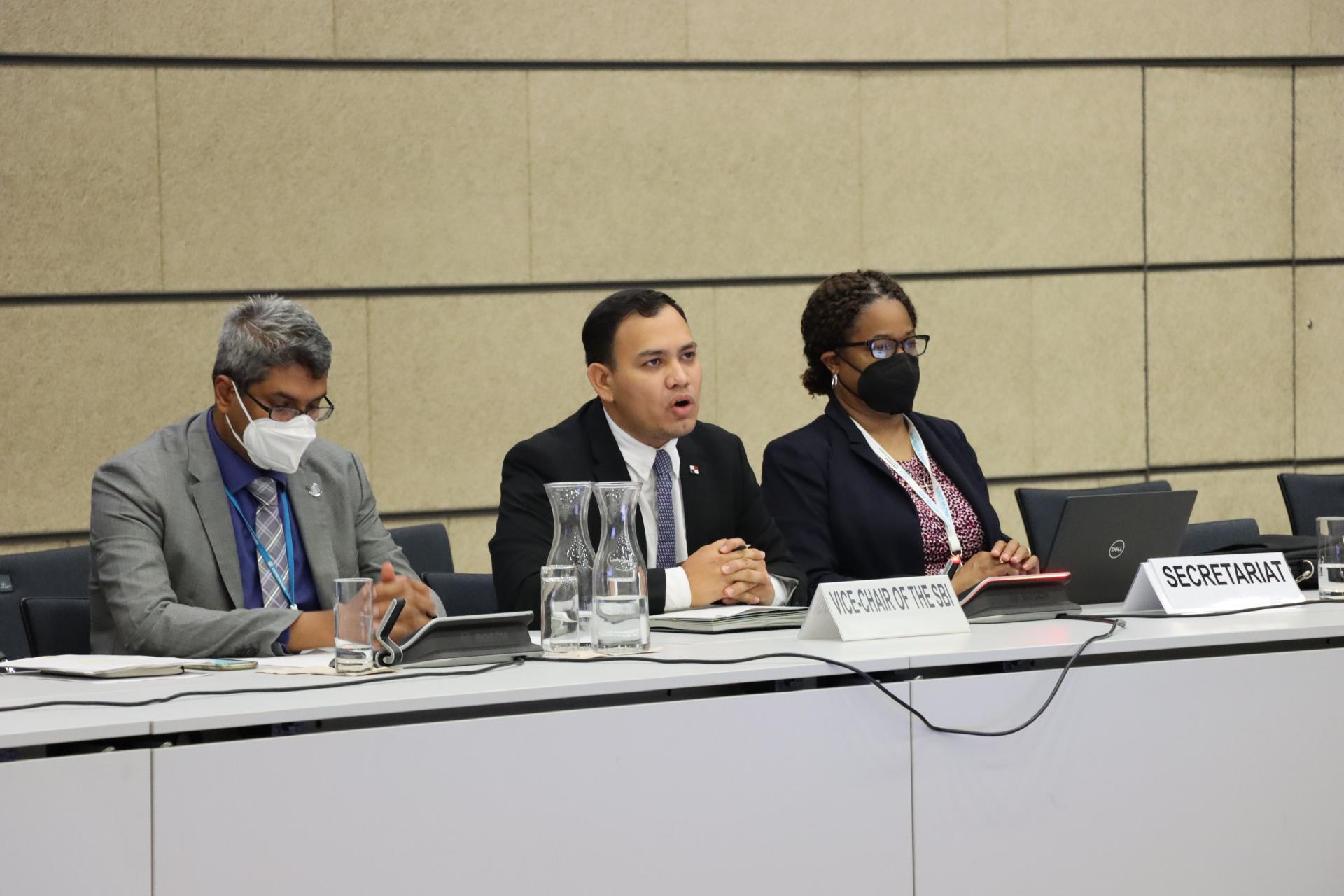UN Climate Change News, 15 June 2022 - Nine developing countries presented their national climate change policies, strategies and plans at the Bonn Climate Conference (6-16 June) as part of the multilateral transparency process - a key element of the Measurement, Reporting and Verification (MRV) arrangements under the Convention.
At the 12th Facilitative Sharing of Views (FSV) workshop, Chile, Cuba, Egypt, Malaysia, Namibia, Panama, Thailand, Singapore and Zambia shared their best practices and highlighted their climate actions, capacity-building needs and initiatives to enhance their reporting.
Most of the emission reduction actions of these countries focus on the energy, transport and forest sectors, which are the main sources of greenhouse gas emissions. The initiatives presented included the development of renewable power; the promotion of electric vehicles in their urban transportation system; and the restoration of forest land.
The Facilitative Sharing of Views is the final stage of the International Consultation and Analysis process (ICA) which lies at the core of the multilateral transparency process.
The importance of the FSV for enhancing climate action was underscored by UN Climate Change Deputy Executive Secretary, Ovais Sarmad, during the opening of the workshop.

"It is my hope that through this constructive dialogue, the important contributions of developing country actions are underscored and the call for urgent and more ambitious action resonates across all countries," Mr. Sarmad said.
The FSV workshop comes as countries prepare to implement the Enhanced Transparency Framework (ETF) under the Paris Agreement - an accountability mechanism that aims to promote implementation of national climate action plans (Nationally Determined Contributions, or NDCs) and the flow of support for climate action.
The ETF is an important tool to assess the progress that countries make in implementing and achieving their NDCs, which are crucial to achieve the Paris Agreement goal of limiting average temperature rise to 1.5 degree Celsius above pre-industrial levels.
Ambitious mitigation actions showcased in energy, transport and forest sectors
All participating countries are committed to increase the share of renewable energy in their energy mix and to promote energy efficiency.
For example, 18% of emission reductions in Malaysia in 2016 resulted from the development of renewable power, mainly hydro. Thailand has also successfully achieved a greenhouse gas emission reduction of 57.84 MtCO2 eq through its mitigation measures in the energy and transportation sectors in 2018, which is 15.76% lower than its projected business as usual level from 2005.
A few countries such as Singapore and Chile have also started looking into green hydrogen. These two countries are also actively promoting electric vehicles in their urban transportation system.
The forest sector has been the main source of emission reductions in several countries, including Cuba and Malaysia. Panama plans to restore 50,000 ha of forest land, with an emission reduction potential of 2.6 million tCO2 eq by 2050, while a Singapore initiative to plant 1 million trees by 2030 has an estimated sequestration potential of 78,000 tons of CO2.
In Namibia, Panama and Zambia, their forest and land categories currently absorb more carbon than is being emitted, which makes them net carbon sink countries.
Malaysia, Panama and Singapore have also started developing carbon markets, while clean development mechanism (CDM) carbon offset project activities under the Kyoto Protocol have been promoted in Egypt. Currently, 20 CDM projects and 6 programmes are registered in Egypt, covering the energy, transport, industry and waste sectors, with a total estimated annual emission reduction of 4.2 million tCO2 equivalent.

The delegates from Egypt, presenting their first BUR
Preparing for the transition to the Enhanced Transparency Framework
The ICA process provides an opportunity for developing countries to enhance their national measurement, reporting and verification system to facilitate transition to the ETF, and they have expressed their capacity-building needs towards that process.
Many developing countries have submitted a biennial update report (BUR), outlining the climate action that they have taken, and their needs and support received. Building on this, many countries have started planning and preparing their first biennial transparency report (BTR).

"Following the example of these Parties undergoing the FSV, I would also like to encourage all developing country Parties that have not done so, to submit their first BURs. Such actions will be beneficial to the preparation of your first BTR under the ETF," said Subsidiary Body for Implementation (SBI) Chair Marianne Karlsen.
During the closing of the workshop, the vice-chair of the SBI, Juan Carlos Monterrey Gomez, said that the constructive dialogues had given participants a clearer picture of where we currently stand. He outlined that further action is needed, and called for collaboration among all governments to achieve the collective goals of the Paris Agreement.

Juan Carlos Monterrey Gomez, Vice-chair of the SBI, chairing the 12th FSV workshop






